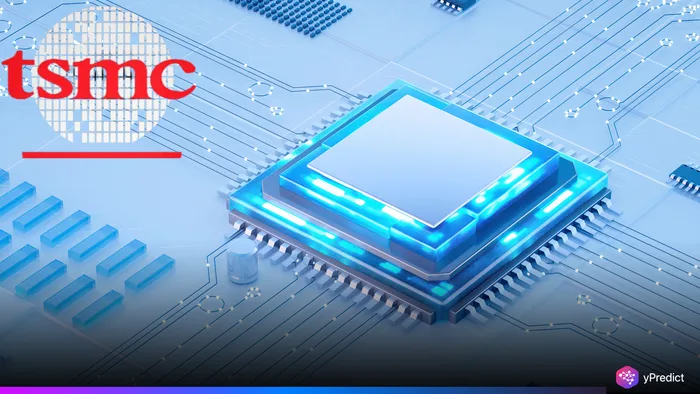
Taiwan Semiconductor Manufacturing Co. (TSMC) reported a whopping 61% increase in profits for the June quarter that surpassed analyst expectations, decreasing doubts aboutthe strength of global AI chip demand. TSMC is currently the world’s largest contract chip maker and at the center of a semiconductor resurgence as a result of the competition to power applications of artificial intelligence across the economy including datacenters and mobile devices, the AI revolution is translating to surging orders for high-performance chips.
The company’s results do not just show financial strength, but reflect a growing shift across the market to AI-driven computing as investors and tech leaders place large bets on hardware that can support AI workloads. TSMC’s healthy results confirm that the global appetite for advanced semiconductor manufacturing is not only intact, but growing faster than anticipated putting the company in a prime position to benefit from the ramp-up of investment in AI infrastructure.
Profit Beats Expectations as AI Demand Intensifies
TSMC reported a net profit of NT$247.9 billion ($7.6 billion) for the April-June term, significantly above expectations with analysts’ average NT$218.1 billion. Revenue grew 36% year-on-year to NT$673.5 billion, marking one of the best quarters the chipmaker has posted in recent memory. The noticeable increase is mostly due to demand for AI chips from customers such as Nvidia and Apple.
The company’s chief financial officer mentioned that he expects the share of AI-related demand to rise gradually in coming quarters, reaching a contribution of mid-teens percentage of total revenue. The highest demand is for advanced chip packaging and for high-performance node production, which strengthen TSMC’s primacy in the AI chip supply chain.
Global AI Boom Powers Semiconductor Growth
The AI revolution is rewriting the rules for the semiconductor industry. With generative AI, large language models, and edge AI accelerating, companies are racing to secure access to cutting-edge chips. TSMC, with its advanced 3nm and 5nm production capabilities, is a key enabler of this ecosystem.
Global tech firms continue to increase capital spending to secure future chip supply. TSMC’s announcement that capital expenditure for 2025 could reach up to $36 billion reinforces the growing intensity of AI-driven investment. As competitors scramble to catch up, TSMC’s early lead gives it significant pricing power and market share.
Strong Outlook as AI Chip Demand Shows No Signs of Slowing
In the meantime, TSMC has set a forecast for 3Q near NT$768 billion and NT$776 billion, which exceeds expectations. The above guidance is a strong indication of confidence that AI-chip demand will remain strong through the end of the year, at a minimum.
While smartphone and PC markets are slowly recovering, growth remains predominantly reliant on AI, according to executives. In particular, strong demand from hyperscalers and cloud service providers. With geopolitical issues limiting China’s access to advanced chipmaking, TSMC’s importance to the West is becoming more strategic.
TSMC Continues to Lead in Advanced Manufacturing
TSMC has no equal in the technical arena. Its 3nm chips are already being utilized in Apple’s new products, and by 2026, it will be producing chips using its 2nm technology. It is still ramping up fabs in the U.S. and Japan, and it is clearly pursuing a strategy to scale up globally and diversify risk.
In addition to profits, TSMC to also defining the future of AI hardware. More and more companies are working to create their own AI, and the more they realize the need to at least utilize TSMC’s foundry to achieve this goal. TSMC offers unbeatable speed, efficiency and reliability all the way from chip design to its advanced packaging.






